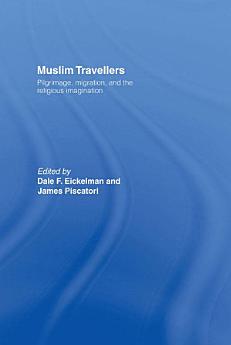Muslim Travellers: Pilgrimage, Migration and the Religious Imagination
Dale F. Eickelman · James Piscatori
Nov 2013 · Routledge
Ebook
304
Pages
family_home
Eligible
info
reportRatings and reviews aren’t verified Learn More
About this ebook
Pilgrimage, travel for learning, visits to shrines, exile, and labour migration shape the religious imagination and in turn are shaped by it. Some travel, such as pilgrimage, explicitly intended for religious purposes, has equally important economic and political consequences. Other travel, not primarily motivated by religious concerns and thus neglected by many scholars, nonetheless profoundly influences religious symbols, metaphors, practices and senses of community. These studies, encompassing Muslim societies from Malaysia to West Africa, also suggest how encounters with Muslim `others' have been as important in shaping community self-definition as encounters with European 'others'.
This volume brings together historians, social scientists and jurists concerned with pilgrimage, scholarly travel and migration in both medieval and contemporary Muslim societies and explores basic issues. Can 'Muslim travel' be regarded as a distinct form of social action? What role does religious doctrine play in motivating travel and how do doctrinal interpretations differ across time and place? What are the strengths and limitations of various approaches to understanding the transnational and local significance of pilgrimage, migration and other forms of travel? An image of Muslim tradition and change in local communities in relation to travel emerges, which competes with the myth of the universality of the Islamic community.
About the author
Dale F. Eickelman, James Piscatori
Rate this ebook
Tell us what you think.
Reading information
Smartphones and tablets
Install the Google Play Books app for Android and iPad/iPhone. It syncs automatically with your account and allows you to read online or offline wherever you are.
Laptops and computers
You can listen to audiobooks purchased on Google Play using your computer's web browser.
eReaders and other devices
To read on e-ink devices like Kobo eReaders, you'll need to download a file and transfer it to your device. Follow the detailed Help Center instructions to transfer the files to supported eReaders.





